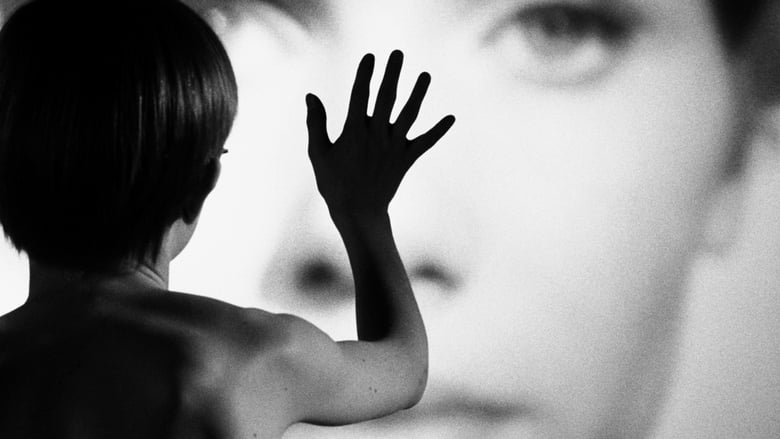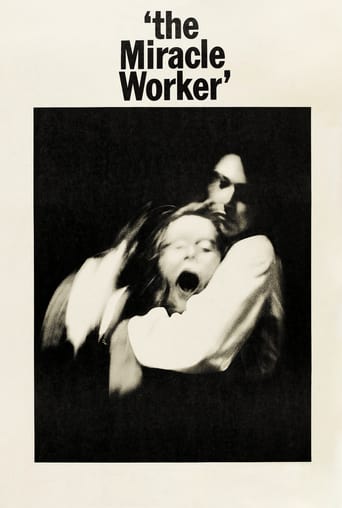

Persona (1966)
A young nurse, Alma, is put in charge of Elisabeth Vogler: an actress who is seemingly healthy in all respects, but will not talk. As they spend time together, Alma speaks to Elisabeth constantly, never receiving any answer. The time they spend together only strengthens the crushing realization that one does not exist.
Watch Trailer
Cast


Similar titles
Reviews
It is almost impossible to praise this movie without sounding smart and cultured and it's almost impossible to criticize this movie without sounding like a bit of a philistine but...yeah, I don't like it.Now, I'm all for stylized cinematography, when "If" switched from color to black and white for no obvious reason I was so impressed because it's the kind of movie that can do that.But here I don't feel it works because, firstly, it makes the whole thing kind of risible, especially given how stone faced the tone is and secondly, the essence of the thing kind of gets drowned in bizarre angles and sudden blurriness.It could have been a fairly effecting exploration into the way, despite superficial differences we are all alike, and part of the same universal journey yet still determined to analyse others. It's ambitious in being mostly just 2 characters (one of whom is almost mute by choice) but ambition doesn't equal skill.I don't think I totally missed everything the movie was trying to say: we see the nurse as the one who has it together and is so different from her but then we see that she is more like simply being at a later stage in her life with elements of her being already visible in the Nurse with her problematic relationship with her fiancé. Or maybe that's tripe but it's the impression I got.And the motif of film: the literal film reel and that she's an actress...the artificiality of the persona...we get it. Oh, and one of them is called "Alma". Seriously.But ultimately I'm a bit "so what?" about it all. There's a tendency for the characters in Bergman's movies to be complex but in the way a psychiatric case study is complex without any relatable human qualities or individuality within except for what is strictly and obviously relevant to the plot or central themes; a tool for movie rather than someone I could meet. So the incites the movie has may be intelligent but also a bit pointless and irrelevant.And while I won't reveal the ending, I didn't even realise it had finished when it did because I saw it with ads on Film4 and there are no credits. So when I found it had finished I was like "wait, is that it?"It's a dense, not very accessible piece of "arthouse" cinema that really exemplifies what people imply by "arthouse" though of course all films are art. It may have been good if it had been half the length and one third the stylization. It has some great atmosphere, the sense of the cold desolate Nordic beach is intensified by its creepy arrhythmic score. The acting is quite stilted, it is first year performing arts academy stuff. Kind of interesting but that doesn't stop it being dull and giving every impression it's convinced of it's own genius. Really just for cinematic curiosity.
For some reason Bergman is considered by many great directors & critics as one of the greatest directors of all time. After having seen The Seventh Seal (1957) and this one i can definitely declare that statement null and void.There's no doubt the black and white photography and the visual imagery are beautiful, and there is really nothing wrong with Bergman's skills with the camera itself, as he uses brilliant closeups and wideshots combined with great cinematography to create a visually impressive film. But these kind of factors need to be combined with the context of an actual story to truly make an impression on its audience, since simply showing pretty images all the time isn't what cinema is about. It's about a combination of technical expertise and relatable human emotion to create a great immersive experience, but this film only has one of these traits.I suppose this movie is generally well liked mostly by pseudo intellectuals who think themselves very smart for liking such an incomprehensible film. The first forty five minutes of the film are pretty linear and straight forward, and do not seem to be anything out of the ordinary. Now these first 45 minutes weren't very good either, but atleast it was coherent and it seemed to have an actual plot. It still never made any sense that the connection between the nurse and a mute actress became so strong so quickly and that she would tell her about something so sensitive that she never told anybody before, but atleast Bergman seems capable of telling a story for some part in a film. However, after the 45 minute mark is where it gets considerably worse and its final 30 minutes focus solely on muddled and repetitive dialogue, weird editing & just a complete mess of a conventional narrative structure to make sure you will have no idea what's going on. Totally seemingly irrelevant images of a spider, a nail being driven through a hand, a boy reading some book are seen throughout the film and all of them are designed so the film can appear to be intellectual, while in reality it isn't. It's easy to say that the film isn't meant to have a conventional narrative structure or an actual cohesive plot because of its ability for pseudo intellectuals to 'Open your mind', because that would make it a whole lot easier to create an actual good film since there is no need for a story, characters, character development or creating a coherent experience in films like this. These kind of experiences are never immersive, because we do not feel connected to the main characters in any way because their connection built in the first 45 minutes feels so wobbly and fake.So, in terms of visuals and camera work there really is nothing wrong with Bergman's way of directing, but it's the messy plot structure and the disconnected editing and sometimes addition of irrelevant images is what turns this film into a pretentious jumble.
This movie is definitely the best movie of all time! Here Bergman tried to show how the people are selfish and think about only themselves. The two people, two different face scene is just the picture of the modern world and modern people. Also Bergman tried to work with different topic in this movie than his own style, he usually works with God and how to show God with avi people. Again, Persona is the best of all time!
I really don't know what else to say about this film, other than that it's a complete masterpiece. I should start by saying it's not exactly for everyone. If you're just getting into foreign films and want to pick a good one to start, this is not for you. If you think the best movie of all time is Casablanca, this is not for you. This movie is quite experimental. It famously starts with a montage of seemingly random images; the film itself in the projector, a man slaughtering a goat, a boy touching a face projected on a wall, and most infamously, a split-second shot of a penis. Personally, I found this opening sequence enthralling. It made me excited to watch the rest of the movie. Obviously, this is not the same reaction everyone has.That's the thing about this movie, as strange and impossible as it often is, it really has to be taken literally. The story, though it may seem to lack one, is about two women, an actress, Elisabet, and her nurse, Alma. Elisabet has mysteriously become silent, despite being otherwise mentally and physically healthy. She is sent to live by the sea with Alma. Alma worries that she won't be able to deal with Elisabet, and will start to go insane.Despite this, the two women seem to enjoy themselves at first. Alma talks about herself, and Elisabet, having little else to do, listens intently. The two women develop a strangely intimate relationship, and Alma starts to tell Elisabet her secrets. Over time, Alma becomes frustrated with Elisabet's condition and starts to hate her. At the same time, she loses her sense of self and the two women edge towards one "Persona". We get the sense that Elisabet is the healthier one by far.Bergman deals with themes such as the mind-body duality, the rejection of motherhood, and the inability of art (and film in particular) to deal with great tragedies. The images are beautiful and haunting. The writing is superb and often disturbing. The acting is expert. This film is flawless, and enjoyment really depends on whether you like this type of film.














